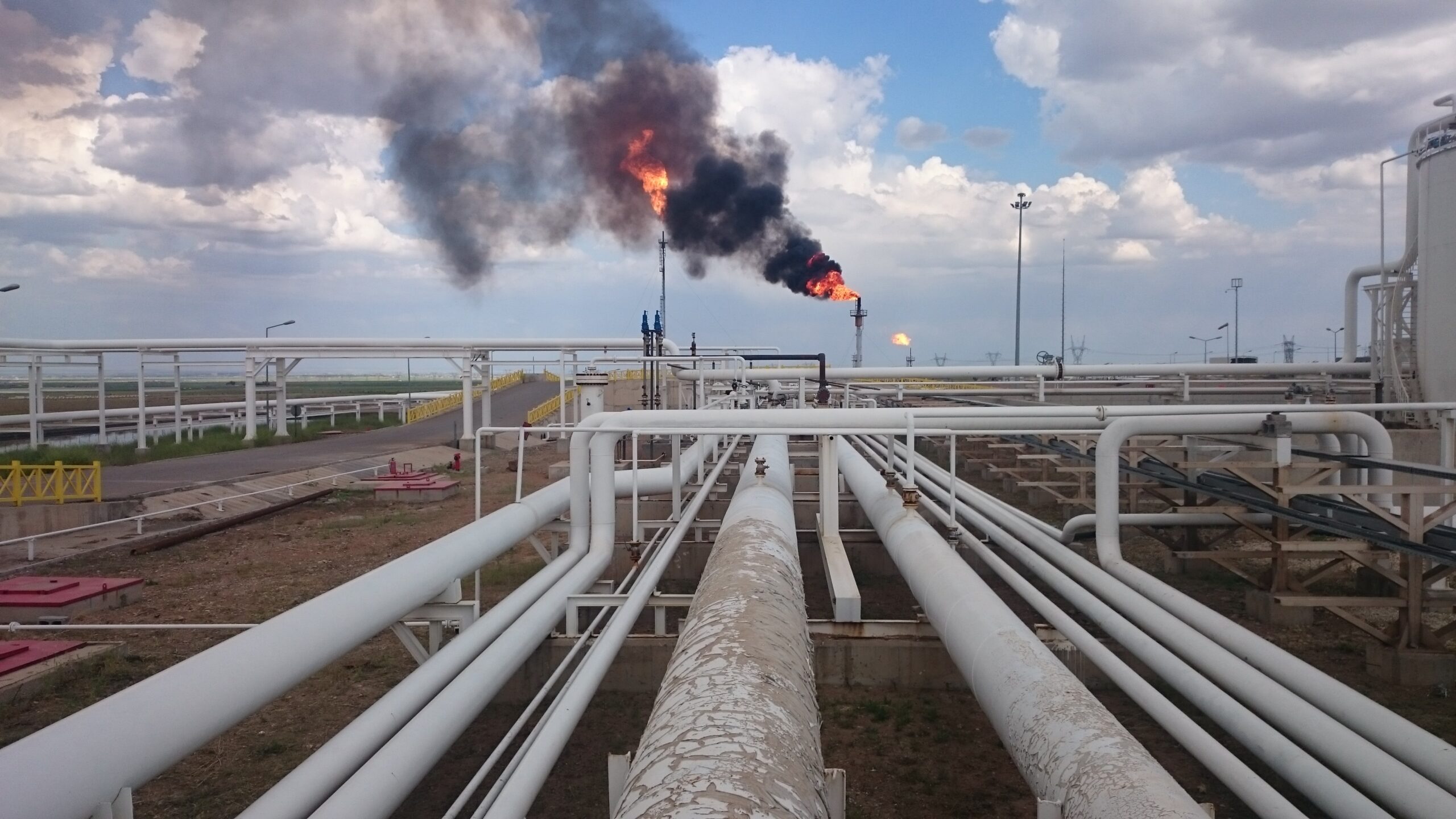After son’s death, father of Iraqi boy confronts BP
An Iraqi boy who lived in close proximity to BP’s oil operations in Iraq featured in a 2022 BBC documentary. He died from leukemia on April 21 and his father confronted BP at its shareholder meeting.

Hussein Jaloud, the father of an Iraqi boy that died of leukemia on April 21, confronted BP executives at the oil company’s Annual General Meeting in London on Thursday. Jaloud lives in the shadow of BP’s Rumaila oil field in southern Iraq, where the flaring of toxic gases is rampant. Jaloud and his son, Ali Hussein Jaloud, featured in the BBC’s documentary Under Poisoned Skies last year.
Hussein had been due to ask a question at BP’s April 27 meeting, but died of cancer just days earlier at the age of 21. His father stood in for him, asking the BP board to stop flaring. Ali’s doctors said his cancer was likely caused by the pollutants released from the flares, which include carcinogens such as benzene that are known to cause leukemia.
“In Ali’s whole life he never hurt a soul, human or animal. Everyone loved him in our neighbourhood and everywhere,” Hussein Jaloud said. “Ali was an example of morality, honesty, respect, all the good qualities he carried with him. And even in the last moments of his life, he told me not to upset people by telling them how much he was suffering.”
Ali had been diagnosed with cancer when he was 15, but had recovered after a bone marrow transplant. More recently, his leukemia had returned.
As the BCC reported in 2022, the oil industry routinely flares gas within close proximity to people’s homes in the oil fields outside of Basra, with flares occurring as close as 250 meters. According to Iraqi law, flaring is supposed to be located at least 10 kilometres from homes. Ali grew up around the gas flares that would light up the night sky, emitting thick black smoke and noxious odours.
North Rumaila is colloquially known as “the cemetery” by some teenagers because of the high prevalence of leukemia, the BBC said.
“Ali died, from being poisoned by the smoke from flares which surrounded his home in every direction,” Doctor Shukri Al-Hassan, a professor of environmental science at Basra University, and who conducted polluting monitoring of the area, and was featured in the BBC documentary, said in a statement.
In response to Jaloud, BP said it was continuing to reduce flaring in the area and it offered condolences to his family. But Jaloud said his son was sacrificed for BP’s profits.
“Ali fought with cancer from 2017 until the end of his life. May God have mercy on you, my son, who was the light of my path in the night, the sustenance of my life,” Jaloud said. “I hope that together we can expose the truth of this toxic pollution that has destroyed thousands of human lives.”
